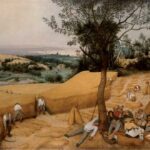Throughout history, the relationship between power and knowledge has played a crucial role in shaping the course of human events. From ancient civilizations to modern societies, the acquisition and utilization of knowledge have often been intertwined with the exercise of power. Let’s delve into how power and knowledge have influenced each other throughout history.
Power Dynamics in Ancient Civilizations
In ancient civilizations such as Egypt, Mesopotamia, Greece, and Rome, knowledge was concentrated among the ruling elite. The possession of knowledge, be it scientific, philosophical, or strategic, often correlated with the exercise of power. Leaders and aristocrats held sway over their subjects by monopolizing knowledge, using it to maintain their authority and control over the masses.
The Role Of Knowledge In Empires
The rise and fall of empires were significantly influenced by the acquisition and application of knowledge. Empires expanded their territories by leveraging superior knowledge of military tactics, geography, and engineering. The possession of such knowledge conferred power, enabling rulers to conquer and govern vast territories, thereby shaping the course of history for centuries to come.

Credit: www.studypool.com
The Renaissance and the Power of Knowledge
The Renaissance period marked a pivotal shift in the relationship between power and knowledge. The invention of the printing press led to the widespread dissemination of knowledge, challenging the monopoly of the ruling class. This democratization of knowledge empowered individuals and facilitated the rise of new ideas, leading to significant societal and political transformations.
The Enlightenment And Knowledge Empowerment
The Enlightenment era further propelled the interplay between power and knowledge. Thinkers and philosophers such as Voltaire, Rousseau, and Locke advocated for the dissemination of knowledge as a means to challenge oppressive power structures. This intellectual movement laid the groundwork for revolutions and the establishment of modern democratic systems, where knowledge became a potent tool for societal change.
Credit: journals.sagepub.com
The Industrial Revolution and Technological Power
The Industrial Revolution ushered in an era of unprecedented technological advancement, fundamentally altering the dynamics of power and knowledge. Innovations in science and engineering fueled the rise of industrial empires, consolidating power in the hands of wealthy industrialists who harnessed knowledge to drive economic and societal transformations.
The Information Age: Knowledge As A Global Currency
The advent of the Information Age further reshaped the relationship between power and knowledge. In a digitally interconnected world, access to information equates to power. Tech giants and multinational corporations harness vast amounts of data and knowledge to influence consumer behavior, societal trends, and even political landscapes, underscoring knowledge as the new global currency.
The Future of Power and Knowledge
As we look to the future, the fusion of power and knowledge continues to evolve. Emerging technologies such as artificial intelligence, biotechnology, and quantum computing have the potential to redefine power dynamics and reshape our understanding of knowledge. How societies wield and regulate these transformative forms of knowledge will undoubtedly shape the course of history in the 21st century and beyond.
Conclusion
The intricate relationship between power and knowledge has been a constant theme throughout human history. From ancient civilizations to the digital age, the acquisition, dissemination, and application of knowledge have underpinned the exercise of power, shaping the trajectory of human civilization. Understanding this relationship is vital for navigating the complexities of our world and shaping a future where knowledge empowers all.
Frequently Asked Questions On The Dynamic Interplay: Power And Knowledge In History
What Is The Relationship Between Power And Knowledge In History?
In history, power and knowledge are intertwined, as those in power often control knowledge dissemination and shape historical narratives.
How Does Knowledge Affect Power Dynamics Throughout History?
Knowledge is a tool of power, influencing societal structures, political systems, and individuals’ abilities to attain and maintain power.
Can Knowledge Be Used As A Means Of Acquiring Power?
Yes, individuals and groups throughout history have sought to acquire knowledge to solidify their power and influence over others.
How Does Power Shape The Acquisition And Distribution Of Knowledge Over Time?
Power dynamics impact what knowledge is deemed significant, who has access to it, and how it is shared or suppressed within societies.
Guest Author Sakhawat-Shuvo wrote and edited this Article based on his best knowledge and understanding. These opinions and remarks are not endorsed or guaranteed by epichistoria.com or EpicHistoria. The Epic Historia does not guarantee this article’s content. Readers should verify and use their judgment before trusting the content. Also, the Images used in this Article are the copyright of their Respective Owners. Please use our Comment Box or Contact Us form to report this content. This information is not accountable for losses, injuries, or damages.

